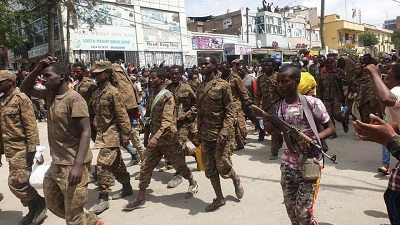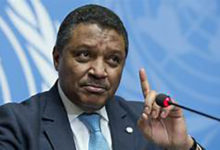
Tigray rebels have denied responsibility for an attack on a health centre in the Ethiopian region of Afar that killed at least 12 people.
The Afar regional administration blames Tigrayan forces for the incident, as fighting in Ethiopia’s nine-month conflict escalates in regions bordering Tigray.
A doctor in Ethiopia’s Afar region told the BBC that the 12 people had died from wounds sustained in a heavy artillery attack on the Galikoma health centre.
Almost 30 more men, women and children needed emergency treatment.
A spokesman for the Afar regional administration said many more civilians had died at the scene but he could not provide an official death toll.
He blamed Tigrayan forces – but a Tigray People’s Liberation Front (TPLF) spokesman said on Twitter that reports of the attack were “alarming”.
He denied responsibility and said the group would co-operate with any investigation.
The health centre was used to shelter displaced people and to store food aid.
Last week United Nations (UN) aid chief Martin Griffiths visited Ethiopia and said 54,000 Afar residents had been displaced by recent fighting.
There are increasing concerns about Ethiopian unity as the conflict in the northern Tigray region escalates.
The nine-month-long war between Tigrayan rebel forces and the Ethiopian army and its allies has been mostly contained in Tigray itself.
But the fighting is spreading into the neighbouring regions of Amhara and Afar.
This is off the back of Tigrayan forces making significant territorial gains, including capturing the regional capital, Mekelle, in June after Ethiopian troops withdrew and the government declared a unilateral ceasefire.
It is a sign that the Tigray crisis is getting worse, but this is by no means the only fighting happening right now in Ethiopia.
It is the second-most populous state in Africa with a history of ethnic tensions. In 1994, a new constitution was introduced which created a series of ethnically based regions meant to address the problem of an over-centralised state.
Until 2018, the governing coalition was dominated by the Tigray People’s Liberation Front (TPLF) and was criticised for crushing any dissent.
After Abiy Ahmed – who comes from the largest ethnic group, the Oromo – became prime minister in 2018, he made a series of bold liberalising moves to end state repression. -BBC






